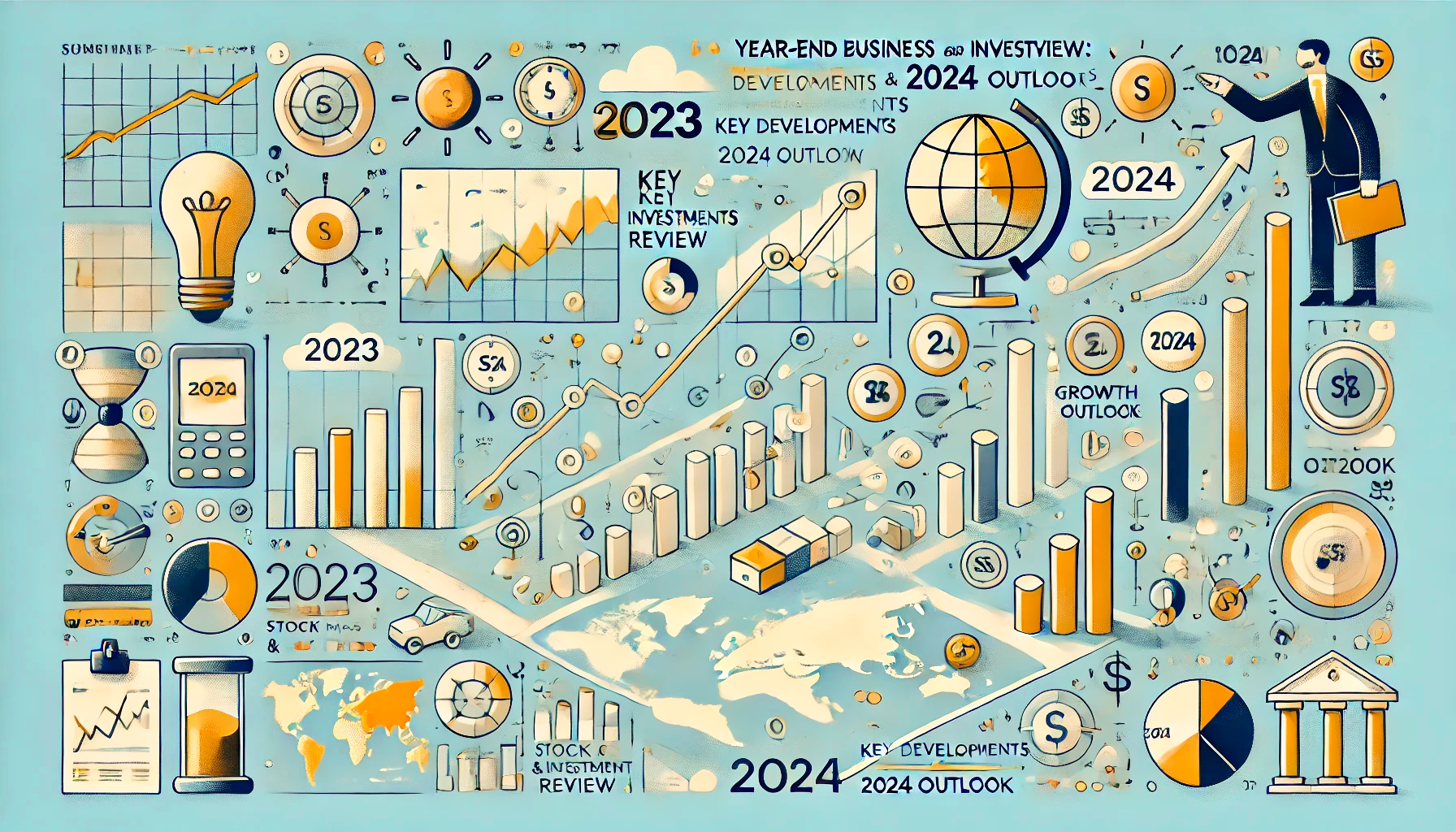As 2023 draws to a close, the global business and investment landscape reflects a year marked by economic uncertainty, geopolitical tensions, and significant technological advancements. These factors have collectively shaped the dynamics of global markets, influencing business strategies, investment decisions, and the trajectory of social projects worldwide. This article will provide an analytical overview of the key developments in 2023 and offer projections for what businesses and investors can expect in 2024.
2023 in Review: Major Trends and Developments
Economic Uncertainty and Market Volatility
The global economy in 2023 was characterized by persistent inflationary pressures, supply chain disruptions, and fluctuating energy prices, largely driven by ongoing geopolitical conflicts and the aftershocks of the COVID-19 pandemic. Central banks worldwide grappled with balancing interest rate hikes to combat inflation while avoiding triggering recessions. The U.S. Federal Reserve and the European Central Bank, among others, implemented aggressive monetary tightening, which led to mixed outcomes across different markets.
Emerging markets, particularly in Asia and Latin America, experienced significant capital outflows as investors sought safer assets in more stable economies. This shift contributed to currency depreciation in several emerging economies, exacerbating the challenges faced by businesses operating in those regions. However, by the year's end, there were signs of stabilization as inflationary pressures began to ease, and global trade showed resilience.
Technological Advancements and Digital Transformation
2023 also witnessed rapid advancements in technology, with artificial intelligence (AI), blockchain, and green technologies taking center stage. Businesses across various sectors accelerated their digital transformation efforts, leveraging AI to enhance operational efficiency, customer experience, and decision-making processes. The adoption of blockchain technology, particularly in supply chain management and financial services, also gained momentum, offering improved transparency, security, and efficiency.
The green energy sector saw significant investment as governments and corporations committed to reducing carbon emissions and achieving sustainability goals. The push towards renewable energy sources, coupled with innovations in energy storage and electric vehicles, created new opportunities for businesses and investors alike.
Geopolitical Tensions and Their Impact on Investments
Geopolitical tensions, particularly in Eastern Europe and the Middle East, posed significant risks to global business operations and investment flows. The conflict in Ukraine continued to disrupt global supply chains, especially in energy and agriculture, leading to price volatility and uncertainty in these critical sectors. Similarly, tensions in the Middle East, including the Israel-Hamas conflict, raised concerns about the stability of global energy markets and the potential for broader regional instability.
In response to these challenges, businesses and investors increasingly prioritized geopolitical risk management, diversifying their investments and supply chains to mitigate potential disruptions. This trend is likely to continue into 2024, as geopolitical uncertainties remain a key concern for global markets.
Projections for 2024: What Lies Ahead
Continued Focus on Sustainability and Green Investments
Looking ahead to 2024, sustainability will remain a central theme for businesses and investors. Governments are expected to introduce stricter environmental regulations, while consumers will continue to demand more sustainable products and services. This will drive further investment in green technologies, renewable energy, and sustainable business practices. Companies that proactively adopt these trends are likely to gain a competitive edge in the market.
Technological Innovation as a Growth Driver
The pace of technological innovation is expected to accelerate in 2024, with AI, machine learning, and automation playing increasingly important roles in business operations. Companies that leverage these technologies effectively will be better positioned to enhance productivity, reduce costs, and create new revenue streams. Additionally, the integration of AI with other technologies, such as the Internet of Things (IoT) and 5G, will open up new opportunities for innovation and growth across various industries.
Geopolitical Risks and Economic Resilience
Geopolitical risks will continue to influence global markets in 2024. Businesses and investors will need to remain vigilant, adapting their strategies to navigate the complexities of an increasingly multipolar world. The focus on building economic resilience—through diversification of supply chains, investment portfolios, and market presence—will be crucial in mitigating the impact of potential disruptions.
Social Projects and Corporate Responsibility
In Europe and other developed regions, the intersection of social projects and corporate responsibility will gain further prominence. Companies are expected to play a larger role in addressing societal challenges, such as inequality, access to education, and community development. This trend will be driven by both regulatory pressures and consumer expectations, as stakeholders increasingly demand that businesses contribute positively to society.
Conclusion
2023 was a year of significant challenges and opportunities for global businesses and investors. As we move into 2024, the key to success will lie in adaptability, resilience, and a forward-looking approach that embraces technological innovation, sustainability, and geopolitical awareness. By anticipating these trends and adjusting strategies accordingly, businesses and investors can position themselves to thrive in an evolving global landscape.
